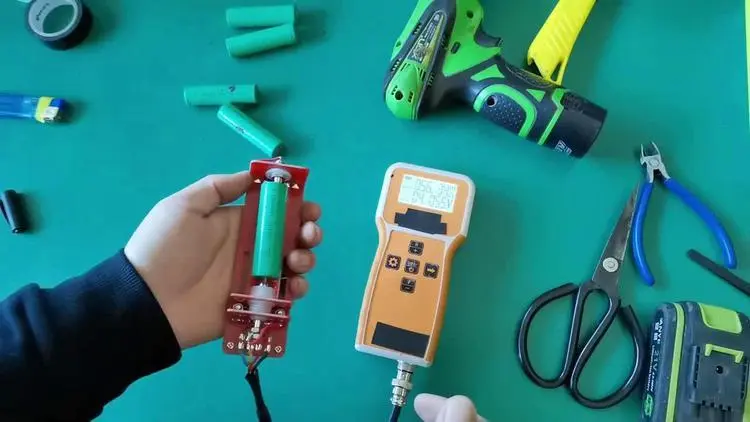Battery internal resistance refers to the resistance between a battery’s internal components and its electrolyte. It directly affects heat generation, energy conversion efficiency, and overall lifespan. That’s why accurate measurement of internal resistance is essential for evaluating battery performance and predicting service life.
Here are some of the most commonly used methods to measure battery internal resistance:
1. Open Circuit Voltage Method
- Place the battery in a test state and disconnect the circuit so it becomes an open circuit.
- Measure and record the battery’s open circuit voltage.
- Connect the battery to a load resistor and measure the voltage drop across the resistor.
- Calculate the internal resistance based on the change in voltage.
This method is relatively simple and suitable for quick assessments, though it may not always be precise for large-capacity batteries.
2. Constant Current Discharge Method
- Set a constant current and discharge the battery for a short period.
- Measure and record the voltage change during discharge.
- Calculate internal resistance from the rate of voltage drop.
This method is more reliable than the open circuit voltage method, as it better reflects the battery’s behavior under load.
3. AC Internal Resistance Method
This technique is often used for large-capacity batteries.
- Apply an AC signal as the excitation input.
- Measure both the phase difference and amplitude difference between the output voltage and current.
- Use these measurements to calculate the internal resistance.
It provides better accuracy than DC-based methods, particularly for power batteries.
4. Electrochemical Impedance Spectroscopy (EIS)
EIS is a more advanced and precise method, grounded in electrochemical principles.
- Apply an AC signal with controlled frequency and amplitude to the battery.
- Measure the impedance spectrum of the battery.
- Convert the results into a complex impedance diagram (Nyquist plot).
- Analyze the curve to determine internal resistance as well as other electrochemical characteristics.
This approach offers the most detailed insights, though it requires specialized equipment and expertise.
Conclusion
Battery internal resistance is a key parameter for evaluating performance, safety, and service life. The choice of method depends on the application:
- For quick tests: Open circuit voltage or constant current discharge methods work well.
- For large-capacity or high-performance batteries: AC measurement or EIS is more accurate.
Selecting the right detection method not only ensures more reliable data but also helps in making better decisions for battery usage, maintenance, and design.


Leave a Reply